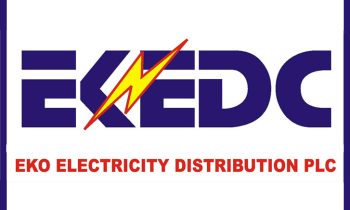Stakeholders in the electricity sector of the economy have urged politicians to desist from generating political megawatts and be more practical in solving the problems.
They want politicians to stop generating power on the pages of Newspapers & Social Media as this most often leads to woeful failure because, at the end of the day when they are confronted with the problems in the sector, they become confused and leave the situation worse than they met it.
One of the presidential candidates stated recently that he would target 15,000 megawatts. He never gave a timeline.
According to stakeholders, it is always easier for politicians to state the number of megawatts they would build if they are voted to power, but when they are voted in and they become president or governors they would begin to fumble either because they don’t understand the power dynamics or because they are just incompetent in doing what is necessary to get the power sector working.
Since the government of Umar Musa Yar Adua stalled the progress being recorded by the Olusegun Obasanjo’s administration because of parochial and ethnic sentiment, Nigeria has not been able to get it right in the area of the power sector.
What was offensive to Yar’ Ardua’s government was not that there were no actions taken to correct the abnormality, but they alleged that most power plants that were built then were in the southern part of the country. By the time they realized their blunder, it was too late.
When Jonathan took over the government, he had a power road map that could help at least salvage the situation. The document was packed and with Professor Bart Nnaji at the helms of affairs but unfortunately, some powerful interest group that felt they must have their way in the power sector ganged up to frustrate the professor out of the system. The rest is now history.
Before this administration came to power everything about the power sector was seen from the prism of corruption. In secret, they would acknowledge that the Goodluck Jonathan administration had tried in terms of the power sector but in public, they destroyed the administration by mere propaganda which has now fallen flat on their face.
This administration has had three ministers in charge of power but rather than the problems of the power section getting resolved it is getting worse.
The generation, rather than increasing, it is receding from one day 5000 megawatts to 1,963.10MW, even during Jonathan’s PDP administration the situation was not as bad as this.
According to Kunle Kola Olubiyo, President, of Nigeria Consumer Protection Network he said the country is in a big mess presently, and there is lots of work to be done.
Again, APC propaganda machinery has been set in motion with its presidential flag bearer Ahmed Bola Tinubu promising to increase the generating capacity to 15,000 megawatts.
The question one would like to ask him, is, is it 15000 installed megawatts he meant to say or daily generating capacity? As far as one can understand, the Nigerian power situation has not improved since the PDP time and so nobody can claim that his party or government has done anything to improve the situation. Go out beyond some big cities and industrial clusters nowhere would you get supply.
Bola Ahmed Tinubu, while unveiling his Road Map to Nigeria’s Greatness among other things includes:
- a) Targeting 15,000MW generation and distribution of electricity.
- b) 25% annual budget for education
- c) 10% annual budget for health
- d) Decentralisation of police
- e) Introduction of commodity exchange
- f) Total deregulation of the oil market and building national storage to sustain supply
g)Stimulation of production and manufacturing for export among other things
Atiku Abubakar of the People’s Democratic Party (PDP) in his own agenda said he would break the government monopoly in all infrastructural sectors including the refineries, rail transportation and power and give private investors a larger role in funding and managing the sectors, thus emulating the benefits accrued in the oil and gas and telecom sector.
Atiku, who unveiled what he called ‘The three guiding principles of my economic agenda’, promised to give the private sector a greater role in the economy.
He said he would “allow the market greater leverage in determining the prices; this way we shall eliminate the persistent price distortions occasioned by current interventionist exchange rate management policy.”
The person who said he would target 15, 000 megawatts has not told Nigerians, how he would solve the problems facing or being created by distribution companies and Transmission Company of Nigeria (TCN). Is he going to entrench the principle of the free buyer and free seller between the parties or will continue the current charity the government is doing in the power section by allowing the forces of demand and supply? How is he going to resolve the problems associated with gas prices?
What would he do to stop system collapse that is a major problem with TCN?
The national power grid currently has an installed capacity of 7,500 megawatts, but only an average of 3,600 megawatts get to the end-Users.
We also have 14,500 Megawatts installed generation capacity energy. Quantum could ramp
There is available power on-grid the that is usually rejected by the 11 Electricity Distribution Companies and Transmission Company of Nigeria.
What are the issues that have brought us to this mess in spite of available energy?
Why do we always have about 4,000 Megawatt of stranded electricity?
We wheel or distribute an average of 3, 500 Megawatt on daily basis.
And on daily basis, we usually have about 4, 000 megawatts of wasted energy, and stranded electricity on Grid.
Nigeria’s situation is like being in the middle of a Sea, a big River or an Ocean and being thirsty. There is a deficit of Supply in the face of a very high energy demand load.
The Presidential Candidates should speak straights to the fundamental issues and tell Nigerians how they will address the root causes of energy crises in Nigeria, and not make bogus promises and claims about per electricity sector.
olusola Bello





